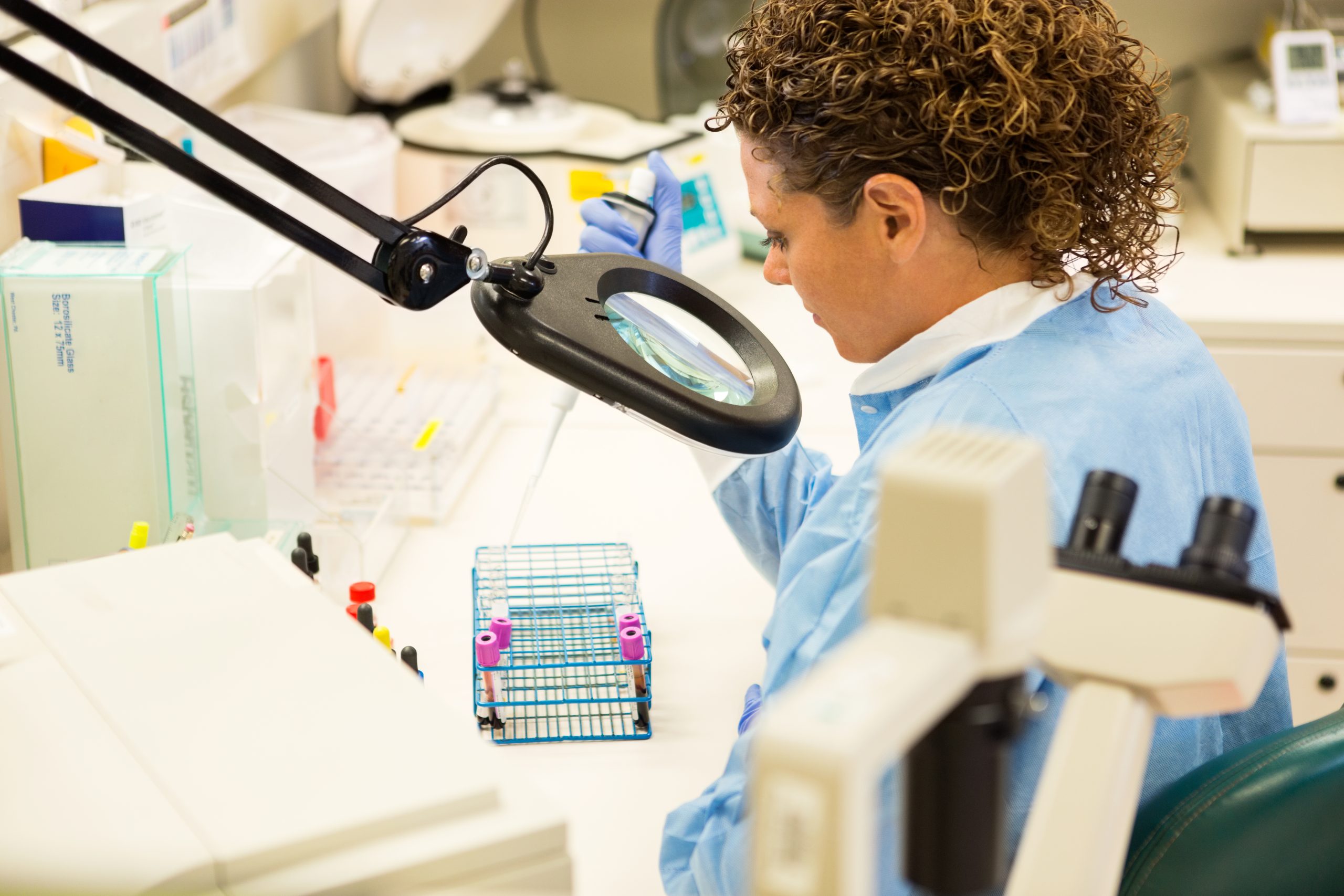
If you’re considering studying biology or physics and are looking for degree path options, you might want to consider being a clinical research associate. Working in clinical research lets you use your aptitude for science while working both in the lab and beyond. There’s no single clinical research associate degree, but working as a CRA is currently one of the top-paying careers for those with degrees in biology or physics.
What Exactly is a Clinical Research Associate?

Clinical research is a term that covers:
- the testing and clinical trials of medications
- treatment protocols
- devices
It’s a crucial process that helps ensure that medical products and procedures are both safe and effective. Clinical research associates (CRAs) are also called clinical research monitors (CRMs). They play a vital role in facilitating the research process. More specifically, they are typically responsible for the following:
Site selection – A CRA will usually select the clinics, hospitals, or similar sites to be used for testing.
Research protocols – CRAs both develop and document protocols and procedures for the clinical trials they manage.
Training – Once protocols are developed, CRAs will train doctors, nurses, and others on the best ways of following them.
Data Collection – CRAs are usually responsible for creating the tools needed for data collection. For example, they may design questionnaires and surveys.
Ensuring compliance – As research continues, CRAs will monitor the project to make sure that rules and regulations are followed. This often includes:
- making sure patients are treated ethically
- that data and personal information remain secure
- that information is documented correctly
- and that drugs are properly dispensed, stored, and disposed of.
Coordinating sites – A single study often involves multiple research sites, and CRAs are often responsible for managing communication among them.
Communicating updates – In the case of announcements or updates, CRAs will create reports or presentations to ensure the information reaches everyone it needs to reach.
If you’re fairly new to the world of clinical research or are just beginning to consider working in the field, it can be confusing to figure out how CRAs fit into the framework of a clinical trial.
Often, a CRA will report to a senior clinical research associate. This more experienced research associate would then report to a clinical trial manager. In turn, the manager would report to the clinical trial director, who reports to the institution’s head of clinical operations.
Historically, the field of clinical research has tended to promote research associates based on years of experience. But in more recent years, there has been a shift toward promoting based on demonstrated skills. If you are motivated to move up into a supervisory role, excelling at your job is likely to be a key determining factor.
What is the Day-to-Day Work Environment of a Clinical Research Associate?

If you would rather not spend your entire workday in the same place, you’ll probably like the day-to-day responsibilities of being a CRA. A CRA needs to coordinate among the organization sponsoring the clinical trial (like a pharmaceutical company) and the various test sites (usually hospitals or clinics). Regular site visits are important, as a large part of the job is ensuring that protocols are being closely followed.
Because a CRA will usually work with multiple clinical trials at one time, this job usually requires some amount of travel. So, if you prefer to be on your feet and have each workday look a bit different, you might be a good fit for the job.
What Education Do You Need to Be a Clinical Research Associate?
To begin working toward a career as a clinical research associate, you will almost always need to earn a college degree, as most CRA positions require at least some level of college education, according to the Bureau of Labor Statistics. Some positions, especially those at very prestigious institutions, may require a master’s degree as well.
Choosing your degree path is a major decision. If this is the career you want to work toward, a major in biology or physics is likely to prepare you well. However, other science-focused degree programs will also offer the foundation of knowledge you need to excel in the field. Chemistry degrees can be useful. If your college or university offers programs in clinical laboratory technology or medical technology, these may be worth looking into as well. Generally speaking, most CRA positions require you to have a degree or extensive coursework in the same vein as the research you’re overseeing. Before choosing your courses, consider what types of clinical trials may be the most interesting to you.
During your college years, it’s wise to focus on developing the skills you need for success in this field. A competent CRA will be able to effectively:
- analyze data
- develop research protocol
- conduct research
To develop these skills, make sure your course load includes a balance of lecture and laboratory courses. Ideally, you should take as many courses as you can in:
- biology
- physics
- chemistry
- biochemistry
- mathematics
- anatomy and physiology
- statistics
Some institutions even offer more specialized versions of these courses. For example, you may be able to take statistics classes designed specifically for those in biology or medicine.
If you want to maximize your earning potential and expand your job prospects, consider pursuing a master’s degree in clinical research or clinical research management. This type of degree is designed to build on what you learned in your undergraduate years. Master’s programs in clinical research tend to be more specialized. They include coursework on:
- research ethics
- product development and regulation
- site and study management
- research design
- data managemen
Some of these programs can be completed entirely online, making them easier to complete if you are already a working professional.
If you want to become a clinical research associate but already have a bachelor’s degree in an unrelated field, it’s still possible to do so. Some master’s programs in clinical research will accept students with a bachelor’s degree in any field. If you want to be able to move up the hierarchy of research management or increase your odds of landing a job at a prestigious institution, you might want to consider a Ph.D. in clinical research. Just as a master’s degree will build on your undergraduate knowledge, a Ph.D. program will delve more into research design, practice, and management.
In order to pursue a Ph.D., you will need a master’s degree. You will almost always need experience in the field as well. If you’re considering this degree path, it’s a good idea to first work in the field for at least a few years. That experience will help you get the most out of a degree program. It also will help you decide whether or not you see yourself working in clinical research in the long term.
What Experience Should You Have?

Having a bachelor’s or master’s degree is a great way to start in the field. Ideally, you will also have some experience in clinical research. One of the best ways to gain experience is through pursuing an internship as a student. Sometimes, you can work in a research lab on campus to earn college credit. This path will help you apply the knowledge you have. But it will also let you experience what it’s like to work in the field and make sure that it’s the right fit for you.
If you have already graduated and did not complete an internship, you can build essential skills and start to make connections in the field by finding a job with a research firm. Most people will start out with a non-clinical position. From there, they can transition to more clinically-oriented jobs. At the very least, working with a research firm will help you build relevant work experience for your resume, and it will demonstrate your interest in the field to potential employers.
Additional Certifications to Consider
Whether you are already a CRA and want to improve your job prospects or are a non-CRA trying to land a first job in the field, a certification is worth the investment of time and money.
If you are a life sciences graduate but have no experience in clinical research, a certification like the Advanced Clinical Research Associate Certification (ACRAC) is a good one to pursue. This is a certification offered by the Certified Clinical Research Professionals Society. The ACRAC is an incredibly thorough training program with over 100 courses. Total study time is estimated to be 250 hours, so completing it is no small feat. However, it will equip you with all you need to know to be a confident and successful CRA.
The Association of Clinical Research Professionals (ACRP) also offers a wide range of certifications, and you can choose one based on your current or desired specialty. You can choose from a certification as an:
- ACRP Certified Professional
- Clinical Research Coordinator
- Clinical Research Associate
- Principal Investigator
You also can take the ACRP Medical Device Professional Subspecialty or ACRP Project Manager Subspecialty exams for more specific certifications. Certifications require you to apply before taking a course or exam, so make sure that you check into the requirements for each one.
What is the Job Outlook for a Clinical Research Associate?
This career has one of the best job outlooks of any career for life sciences majors. It’s a challenging career that demands a good bit of both knowledge and interpersonal skills. That’s part of why it tends to pay well. The median salary for clinical research associates is estimated to be $67,538. However, salaries tend to vary widely depending on experience. If you are just starting out, you will usually earn a good bit less than someone who has been working in the field for many years.
That being said, even introductory CRA jobs tend to pay fairly well. Those who have been working in the field for less than one year earn $57,000 on average. The pay goes up steadily — someone working in the field for five to nine years would earn $76,000 on average, while someone working 20+ years earns an average of $84,000.
Keep in mind that salaries are also influenced by location and cost of living. More expensive cities tend to pay much more, but a certain percentage of that salary will need to go toward the higher cost of living. Likewise, the prestige of the research institution also plays a role. Clinical research associates working for large pharmaceutical companies or very well-respected universities tend earn more.
Luckily, the growth forecast for CRA jobs looks promising. However, the Bureau of Labor Statistics groups CRAs in with clinical laboratory technologists and technicians for reporting purposes. There aren’t specific statistics for the growth of only CRA positions. But laboratory technologist and technician jobs are expected to grow by seven percent through 2028.
As is the case with most healthcare professions, there will always be jobs for CRAs. That’s because new medications and treatment protocols are constantly being developed. There is a consistent need for clinical trials.
What Other Skills and Traits Do You Need?
Of course, it’s important to focus on the education and knowledge base you need to become a CRA. But aside from earning a clinical research associate degree, you also will need to consider the interpersonal skills and personality traits that will help you really succeed in the field.
Being a detail-oriented person is essential, especially to the data-management side of the job. You will need to be able to see trends in data and create easy-to-understand data reports. Being able to quickly find and correct errors and inaccuracies in the data you gather is also crucial.
You also will need emotional intelligence. Working as a CRA means that you will interact with a wide variety of people. Emotional intelligence will help you develop effective recruitment and retention strategies. It also will help you to effectively communicate with research staff and participants.
Similarly, you will need effective interpersonal skills. As a clinical research associate, you will need to be able to offer constructive feedback to:
- nurses
- doctors
- staff
- study participants
Being able to motivate your entire team and foster a supportive and productive work environment will go a long way toward your success.
If you’re a science-minded person looking to use your skills to help others, pursuing a clinical research associate degree is a great step toward your future. A career as a clinical research associate can certainly be demanding, but you’ll be making a positive impact on the world while earning a decent living.
- What Is the Best Degree Path for Becoming a Research Scientist?
- What Is the Best Degree Path for Becoming an Operations Research Analyst?
- 5 Research Methods Used in Psychology
- What are Some Research Grant and Scholarship Opportunities Available for Sociology Majors?
- 30 Great Degree Programs for Working Adults
- 50 Best Online Degree Programs
